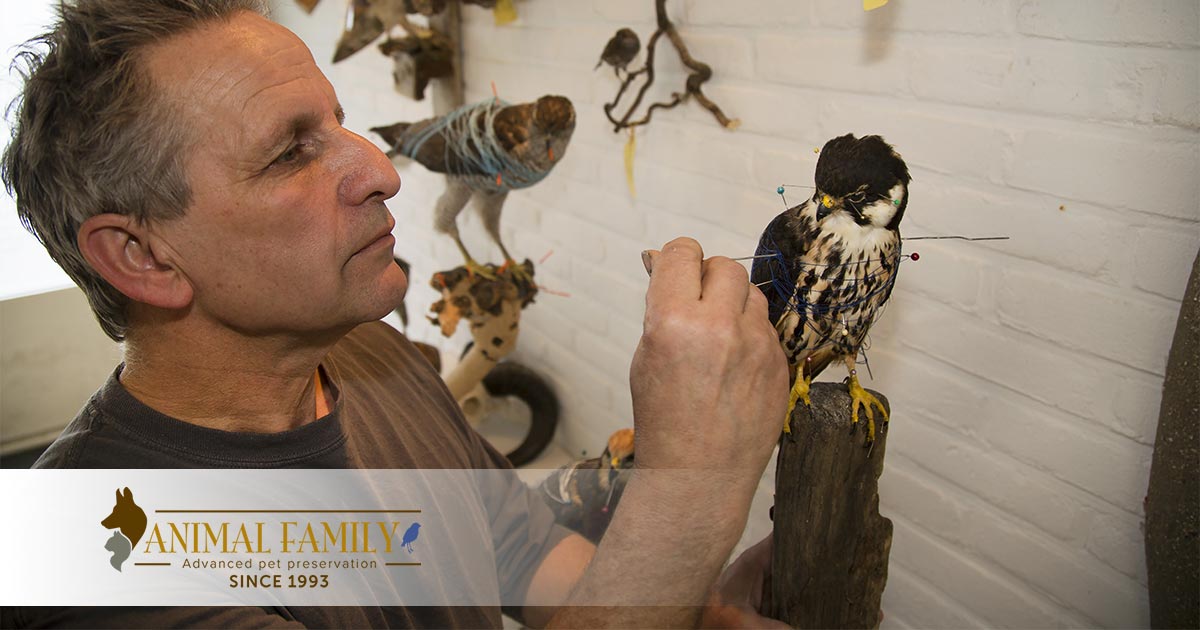
Why Does Taxidermy Take So Long?
December 30, 2020 8:11 pm Leave your thoughtsWhat is Involved in Taxidermy?
Taxidermy is the technique used by taxidermists to preserve an animal’s body by mounting for study or display in a museum or at home. How does this technique work? The taxidermist poses the animal in a posture that they find suitable, and then places it in a closed vacuum with high pressure and low temperature to extract water.
Unlike other preservation methods, taxidermy involves little alteration of the animal body structure. The taxidermist works towards ensuring the animal remains as natural as possible. Would you like to preserve your beloved pet’s memory for a life-long? Taxidermy is your best alternative.
Once the taxidermist receives the animal, the first step is to skin it and then send it to the tannery. After it has been returned, the taxidermist will start fixing it on the mounted animal ready for display.
How Long Should A Taxidermist Take?
The time taken by a professional taxidermist to get the animal back to the studio may be extended and tiring. The turnaround time may range from two to six months or longer based on the animal’s size. But why does this process take so long?
Before diving into the why question, it is essential first to understand the industry. Most of the taxidermist studios are tiny, with one to five taxidermists. Lack of enough human resources makes it challenging for completing the process fast.
Besides, many taxidermists start the industry to love for hunting and fishing. However, non-of these outdoor activities contribute to having necessary business management skills to run an efficient operation resulting in delays.
It may take several weeks or months to gather enough skins to be sent to the tannery at the taxidermist studio. At the tannery, it may take quite some time before it is returned to the dog taxidermy or cat taxidermy studio. Once they are returned, they are stored until the project that is ahead is complete. The limited financial and human resource makes the waiting period long and tiresome.
Are you still wondering why it is taking so long to get your trophy back? In summary, pet taxidermy takes so long due to limited human, financial resources, and inefficient management systems.
Holding other factors constant, to answer how long a taxidermist takes, it solely depends on the size of the animal. Large bodied animals are known to take long to preserve than smaller ones—the waiting period for animals weighing one to six pounds maybe three months.
Why Is the Perfection of The Utmost Importance?
Perfection in this process enables the taxidermist to overweight the animal in a life-like state. This would not be possible with a poorly done job. It is the taxidermist’s role to works to perfection, ensuring you get the result that you desire. It becomes the utmost importance to perfection their job to make their clients happy and satisfied.
To ensure the longevity of the preserved animal is another reason why the taxidermist value perfection. The drying process must be done correctly, ensuring that it does not produce an awful smell. Besides, poorly dried skin may develop molds due to moisture reducing its life span. For the taxidermist, the best method is to consult with experienced taxidermists who have already achieved success.
The taxidermist ensures it is kept in a dry and low humid area when it comes to storing the product. High humidity will make the animal skin moist and can deteriorate the skin. A worn-out skin is as good as the whole animal is destroyed. Also, direct UV light is not good as it may damage the color of the animal’s fur.
Since most of the preserved animals are displayed in museums, pet taxidermists must ensure they perfect their work to attract more people. The tourist wants to see the exact copy of the real animal. The constant flow of visitors is necessary to keep the business afloat; otherwise, the whole process may be deemed unsuccessful without a good number.
Taxidermists must perfect their art to ensure that the client is satisfied. You want exactly the replica of the original pet at your home. This will not be achieved if the taxidermist fails to perfect their work.
The taxidermist usually emphasizes on the importance of taking care of your pet once it leaves the studio. They offer tips on the best way the owners can continue to care for the animal to maximize long term benefits. However, it would be impossible to do so is they have not perfected their part.
Preserve Your Pet Today
Whether you recently lost your pet or are considering taxidermy as way of preserving a beloved family pet in the future, the experts here at Animal Family Pet can help. Contact us today to learn more, and discover how you can better prepare, and keep you pet in your life for years to come.
Categorised in: Pet Preservation, Pet Taxidermy
This post was written by admin


